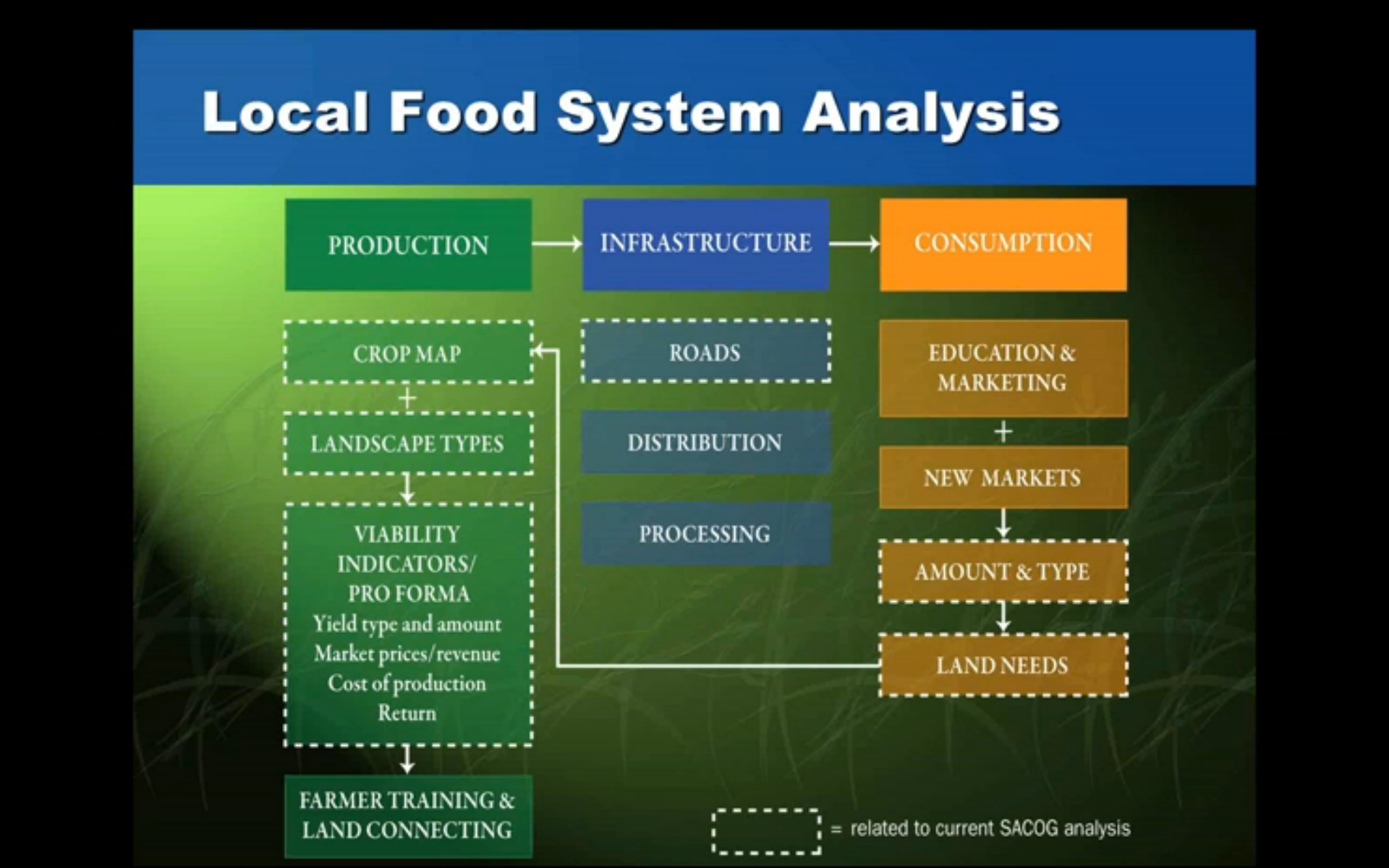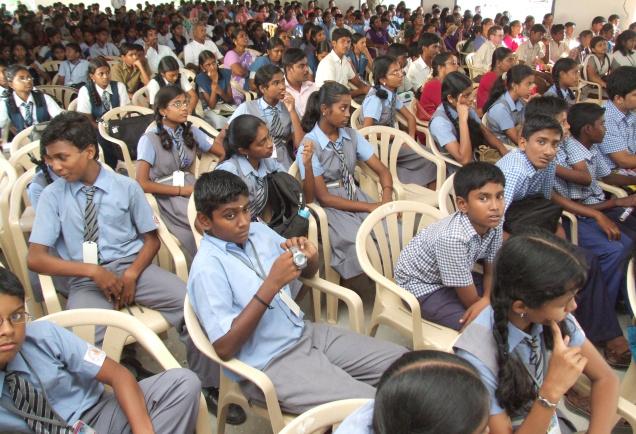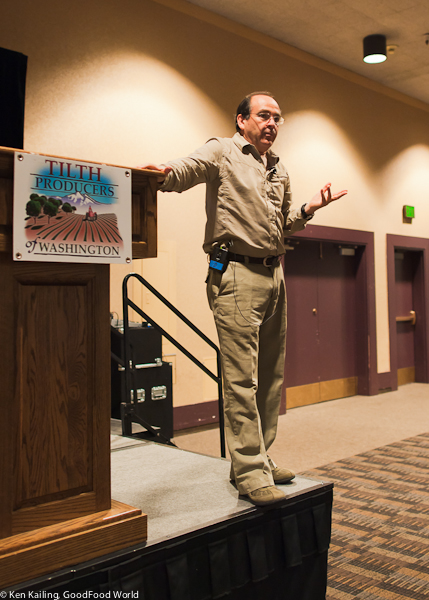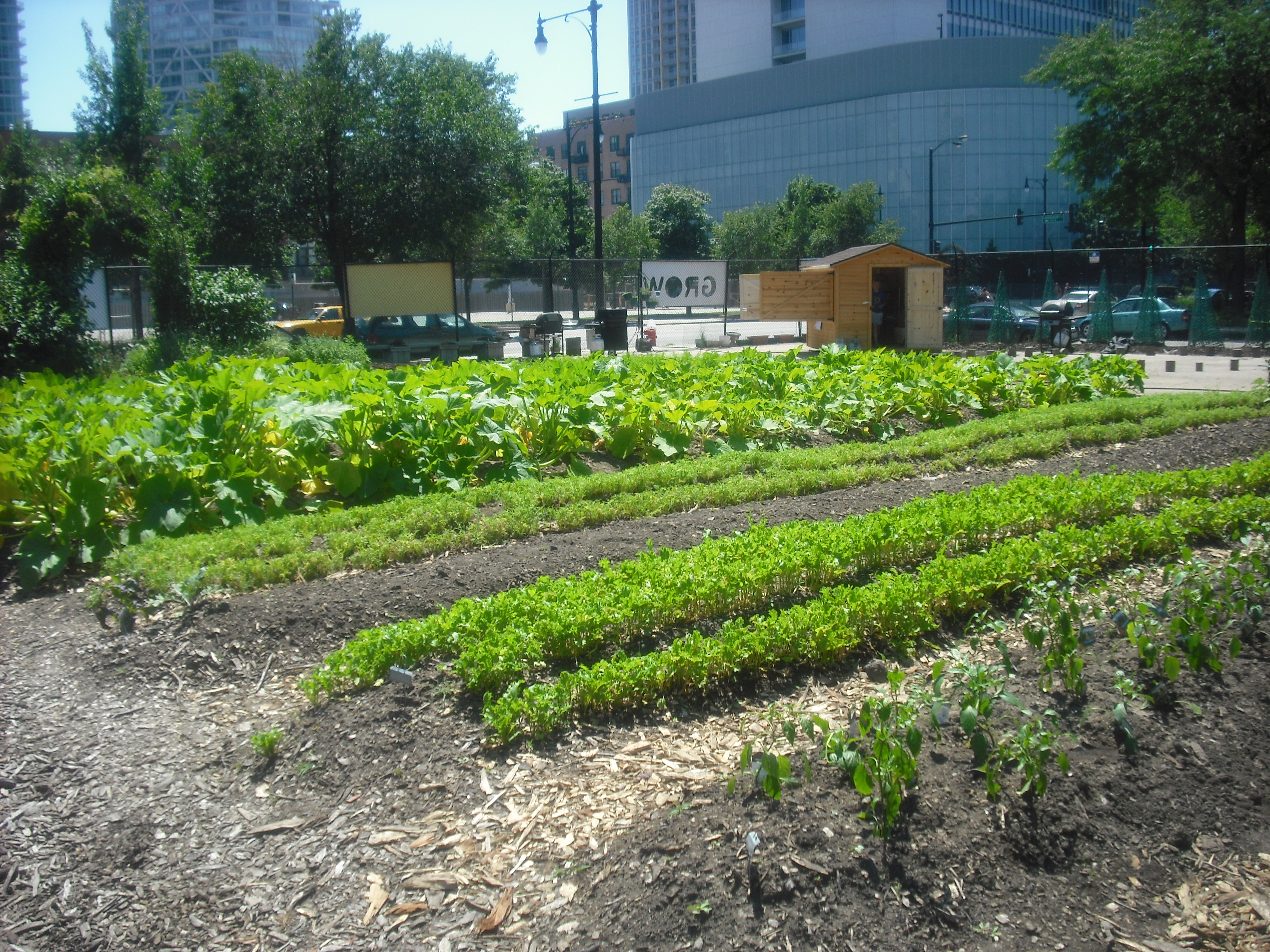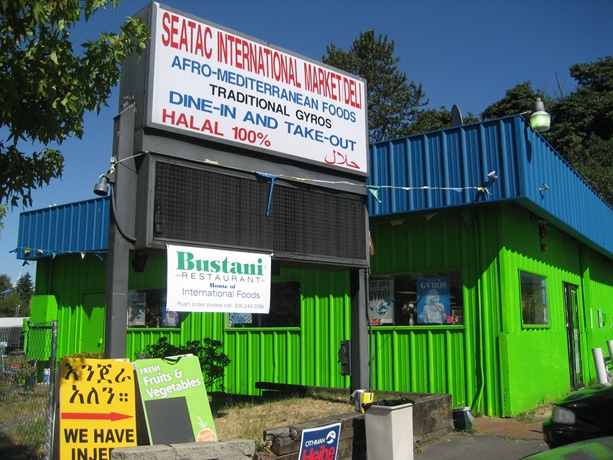Food Systems Planning at the Local and Regional Level
Ever more Americans are becoming urban dwellers and access to good quality, reasonably priced food grown sustainably is more and more challenging. Food is grown using chemical-laden agricultural methods and travels longer distances to kitchen or table. We need to find ways to bring sustainable food production closer closer to home.

